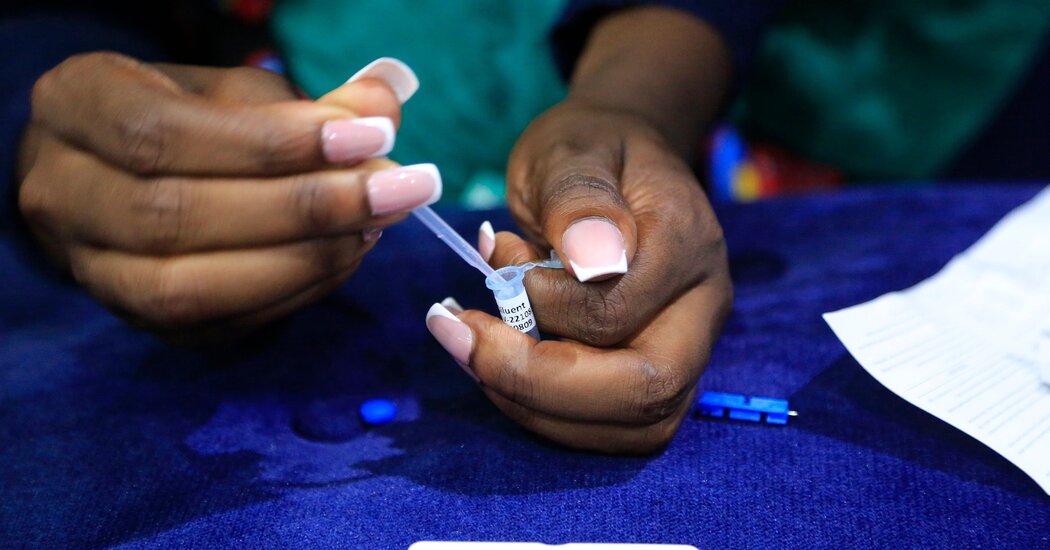
Researchers and activists in the trenches of the long fight against H.I.V. got a rare piece of exciting news this week: Results from a large clinical trial in Africa showed that a twice-yearly injection of a new antiviral drug gave young women total protection from the virus.
“I got cold shivers,” said Dr. Linda-Gail Bekker, an investigator in the trial of the drug, lenacaprivir, describing the startling sight of a line of zeros in the data column for new infections. “After all our years of sadness, particularly over vaccines, this truly is surreal.”
Yvette Raphael, the leader of a group called Advocacy for Prevention of H.I.V. and AIDS in South Africa, said it was “the best news ever.”
The randomized controlled trial, called Purpose 1, was conducted in Uganda and South Africa. It tested whether the every-six-months injection of lenacaprivir, made by Gilead Sciences, would provide better protection against H.I.V. infection than two other drugs in wide use in high-income countries, both daily pills.
The results were so convincing that the trial was halted early at the recommendation of the independent data review committee, which said all participants should be offered the injection because it clearly provided superior protection against the virus.
None of the 2,134 women in the arm of the trial who received lenacapavir contracted H.I.V. By comparison, 16 of the 1,068 women (or 1.5 percent) who took Truvada, a daily pill that has been available for more than a decade, and 39 of 2,136 women (1.8 percent) who received a newer daily pill called Descovy were infected.
